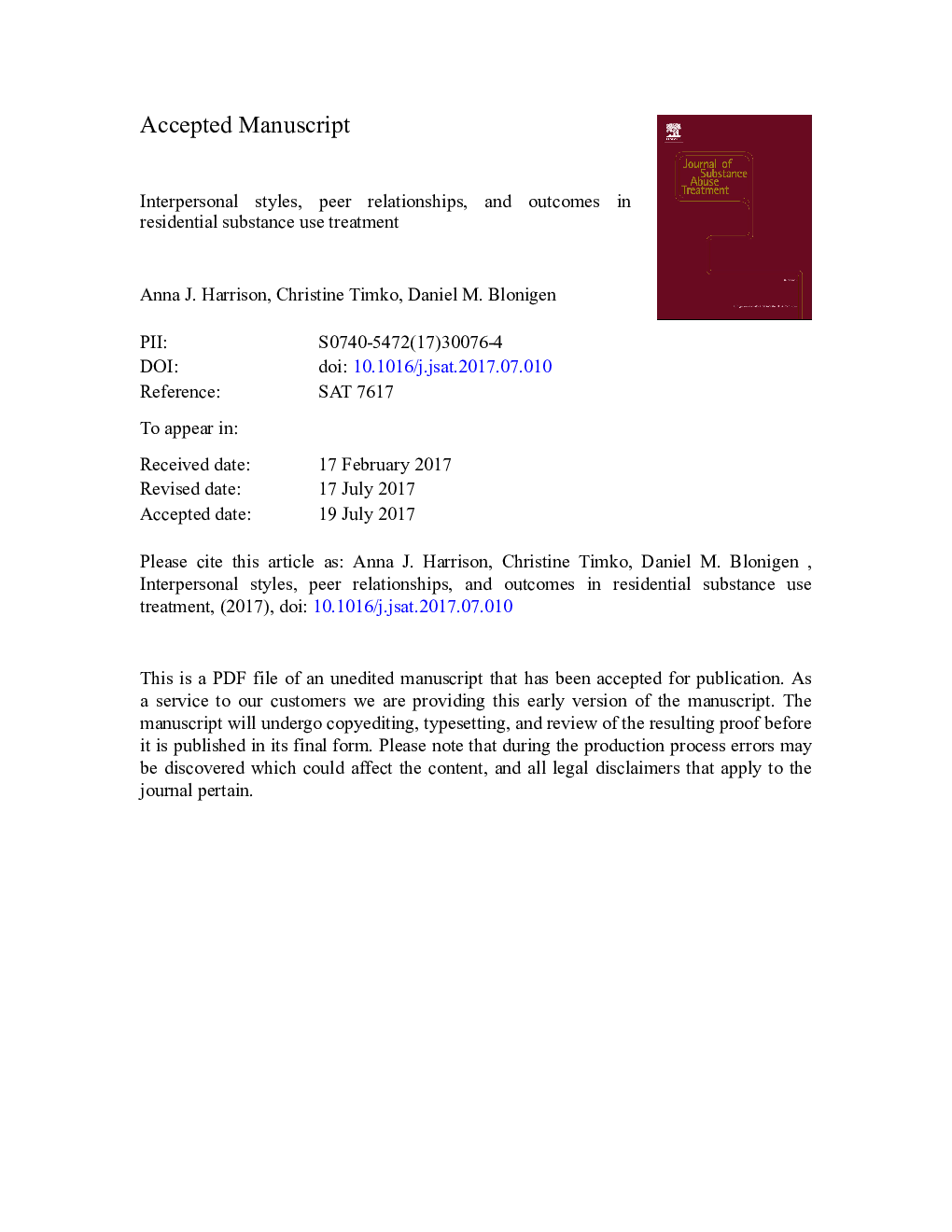| Article ID | Journal | Published Year | Pages | File Type |
|---|---|---|---|---|
| 4932255 | Journal of Substance Abuse Treatment | 2017 | 34 Pages |
Abstract
Interpersonal relationships play a key role in recovery from substance use disorders (SUDs). We examined the associations between problematic interpersonal styles, peer relationships, and treatment outcomes in a sample of U.S. military veterans in residential SUD treatment. Participants were 189 veterans enrolled in a residential SUD treatment program at a Department of Veterans Affairs medical center. Participants were interviewed at the time of treatment entry (baseline), one month into treatment, and 12 months following discharge from treatment. More problematic interpersonal styles at treatment entry, measured by the Inventory of Interpersonal Problems-Circumplex (IIP-C), predicted more SUD symptoms 12 months post-discharge (r = 0.29, P < 0.01). Results of a principal components analysis of the IIP-C subscales revealed three main factors of interpersonal styles: Passive, Cruel/Aloof, and Controlling. With the exception of the Passive factor, the relationship between these interpersonal styles and SUD symptoms 12 months after discharge was mediated by relationship quality with peers one month in treatment: i.e., more problematic interpersonal styles at baseline predicted poorer relationship quality with peers at 1 month, which in turn predicted more SUD symptoms at 12 months. Results demonstrate the importance of assessing interpersonal styles among patients in residential SUD treatment, as well as potentially augmenting existing evidence-based psychosocial treatments with a focus on interpersonal styles.
Related Topics
Life Sciences
Neuroscience
Biological Psychiatry
Authors
Anna J. Harrison, Christine Timko, Daniel M. Blonigen,
